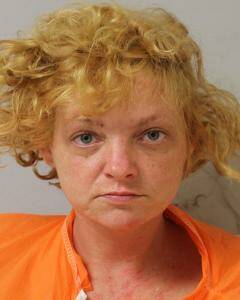Trump’s return to scene of attack is a do-over in more ways than one
BUTLER, Pa. — Donald Trump returned to Butler, Pennsylvania, on Saturday for a massive rally at the fairgrounds where he was struck in July by a would-be assassin’s bullet, an event envisioned by his campaign as a show of strength and a memorial for the former volunteer fire chief who was killed during the attack.
His speech quickly swung from a somber commemoration of the slain firefighter, Corey Comperatore, to a somewhat subdued, sanded-down version of his standard attacks on his opponent, complete with exaggerations and falsehoods. Trump commended his own performance in the face of adversity and brought out one of his biggest backers, billionaire Elon Musk, who jumped up and down on the stage.
ADVERTISING
For Trump, who has been jarred by the changes in the presidential race since he was attacked in Butler on July 13, the rally served another purpose: It offered him a chance to seek something of a do-over after a series of major events reshaped the contest just as the Republican convention in Milwaukee ended.
The rally’s stagecraft and programming — with singers, family members and friends serving as “character witnesses” — echoed the convention’s grandiosity, down to the same opera singer who closed out the proceedings in Milwaukee performing a handful of songs.
President Joe Biden announced he was dropping his 2024 bid three days after Trump’s nominating convention, swamping all news coverage of the former president’s near-death experience and resetting the race with a new, younger Democratic opponent almost immediately.
So in Butler on Saturday, Trump sought to recapture the same spirit that engulfed him in Milwaukee, where he was riding high in the polls as he was nominated for a third time just five days after the shooting.
The rally — which Trump was intent on holding — was marked by intense security, a sprawling crowd and some anxiety, with Trump having faced a second attempt on his life since July.
Trump, at a rally where other speakers bemoaned the overheated rhetoric in the campaign as leading to violence, seemed to focus on his victimhood, making a baseless suggestion at one point that the attempt on his life could have been the work of the same political opponents he has repeatedly accused of weaponizing impeachments and the criminal justice system against him.
For a significant part of the day, Trump’s team used the rally to honor Comperatore, who was killed during the assassination attempt in July as he shielded his wife and daughters from the gunfire. Comperatore’s firefighter coat and helmet were placed in the stands behind the stage.
Many in the crowd wore T-shirts reading “Fight! Fight! Fight!” — quoting what Trump said right after his ear was grazed by a bullet in July.
People stood in line for hours Saturday in order to be part of the day, and were visibly delighted to be there.
Several speakers mentioned Comperatore, with early speakers offering a somber reflection of the horror that had taken place at the fairgrounds less than three months earlier. And Trump, who met with Comperatore’s family before his speech, opened his remarks by paying tribute to him.
Trump’s running mate, Sen. JD Vance of Ohio, commended Trump for returning to Butler. Mocking Harris, he asked the crowd who they would rather have dealing with foreign affairs: “someone who is afraid of interviews with the friendly American media or someone who faces down two assassins and returns triumphantly to the very place he got shot?”
Two of Trump’s friends in the business world, John Paulson and Steve Witkoff, offered testimonials. Then, Trump’s son, Eric, and daughter-in-law, Lara Trump, gave speeches that had highlights of what they said at the Republican National Convention in Milwaukee. Trump entered to a live rendition of “God Bless the USA,” the typical walk-on music played at his rallies, another moment borrowed from his convention.
But while the lead-up speeches before Trump took the stage were distinct for one of his rallies, and he made a dramatic entrance by taking the stage and declaring, “As I was saying,” a reference to when he felt something strike his ear at the July 13 rally, his speech was mostly a fairly standard collection of his rally remarks.
The most dynamic moment of Trump’s remarks came when he invited Musk to the stage. The billionaire, who endorsed Trump minutes after the assassination attempt, bounded up to the microphone, complained about a lack of laws requiring voter identification and warned ominously that November’s election “will be the last election” if Trump does not win.
Trump eased slightly off the starkly dark rhetoric with which he often describes the country, but frequently made exaggerated claims about immigration.
At the start of his speech, he displayed a chart about the issue that he has credited with saving his life after he turned his head to look at it in July.
But aspects of the graphic are highly misleading.
Trump also criticized Harris’ previous support for a ban on fracking, an issue his campaign is hoping will energize voters in Pennsylvania, a critical battleground state. He repeated debunked claims about cheating in elections and fired up his base by talking about transgender athletes.
And he mocked Harris as being insufficiently interested in those affected by Hurricane Helene, despite the fact that she spent Saturday on a trip to storm-ravaged North Carolina.
This article originally appeared in The New York Times.
© 2024 The New York Times Company




